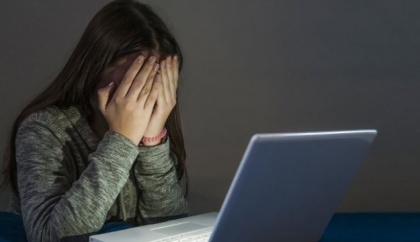
Today, a campaign against abuse of children on the Internet was launched in Ukraine.
Reprinted from Ukrinform
Children's Day marks the beginning of summer. On June 1, before the war, the media would feature either clichés about a "happy childhood" or reflections on parenting. The war shifted both the media focus and world’s attention, as the issue of child protection has become particularly urgent. Unfortunately, we cannot protect children from the destructive effects of a global catastrophe. Death, destruction, displacement, loss of a familiar way of life, separation from family and friends even under the close supervision of adults — a set of such challenges makes children particularly vulnerable to criminal manipulation and malicious acts. Adults should be especially vigilant nowadays. One of the most difficult challenges is the World Wide Web, which provides a lot of space for both friendly communication and crimes, including sharing of sexual content. It is very difficult to fight online evil, and the scale of danger keeps increasing. This is a global problem that affects all countries. Recent statistics published in a study by Childlight — Global Child Safety Institute at the University of Edinburgh show that every eighth child in the world (12.6%) has been the victim of non-consensual conversations, sharing, and viewing sexual images and videos online. In addition, 12.5% of minors have been victims of online harassment, which includes unwanted conversations on sexual topics, e.g. sexting (sending personal photos, naked genitals, and intimate messages via email or social media), sexual questions, and requests for sexual acts. In addition, criminals often demand money from victims in exchange for keeping the images private. They also create fake photos using artificial intelligence.
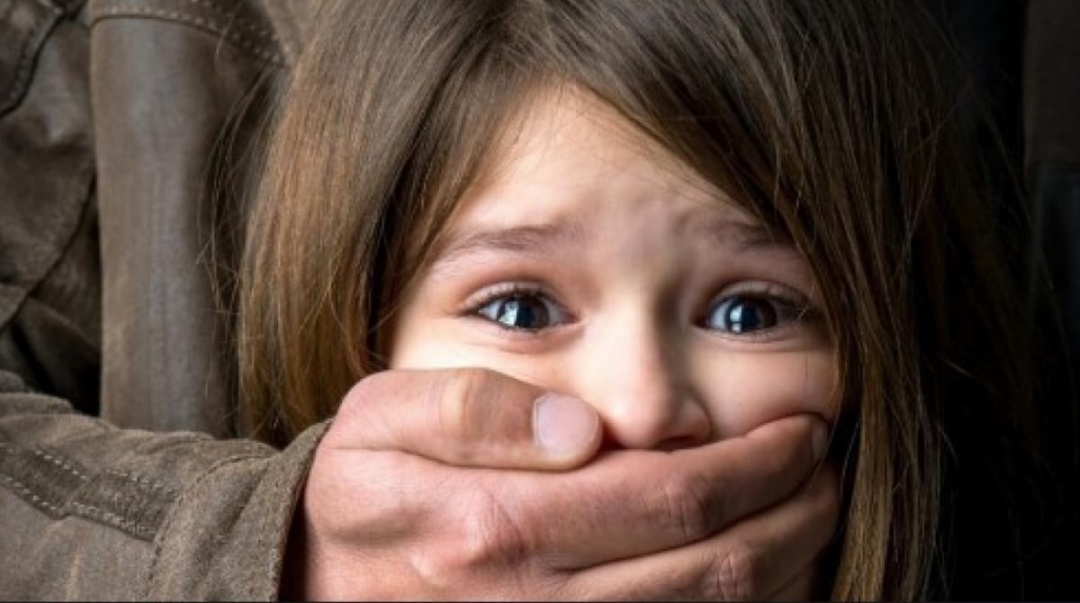
Photo: depositphotos.com/ luislouro According to the statistics collected by international organizations in Ukraine, the number of children's involvement in sexual content has also significantly increased. For example, International Association INHOPE, which includes 58 member countries and blocks harmful content, recorded in Ukraine 4,697 links to pages with harmful content in 2019, 7,256 links in 2020, and 30,252 materials in 2021. A similar trend is evident in the statistics of another human rights organization. The NCMEC, which is the largest child protection organization in the United States, recorded 24,460 materials from Ukraine, and in 2021, there were already 67,852. The statistical growth is exponential. Yaroslava Dyo, Chief Specialist of the Department of Digital Skills Development and Digitalization of Education at the Ministry of Digital Transformation, says, “According to the results of the Ministry of Digital Transformation digital literacy survey in December 2023, the percentage of adults (18-70 years old) who have faced security-related problems on the global network has increased by 14% over the past two years. Among Ukrainian teenagers, the figure is 12%. In general, 81% of adolescents have experienced problems with illegal activities on the Internet. Compared to adults, teenagers are twice as likely to have experienced misuse of personal information available on the Internet, which has led to discrimination, bullying, mockery, threats, hate speech, harassment, etc.”

Oleksiy Sydorenko, Head of the Department for Combating Violence Against Children at the “Magnolia” NGO. Photo: magnolia.org.ua Oleksiy Sydorenko, Head of the Department for Combating Violence Against Children at NGO “Magnolia”: “The Internet is dangerous not only because it contains child pornography, and children can become victims of violence. There are many problems that remain ‘invisible’ to adults: sexual content, dangerous dating, conversations about the body and sex. Someone can extort naked photos from children on the Internet and then use them against the child.” Alla Tiutiunnyk, Director of the Strategic Development Department at NGO “Docudays”: “This is a very scary statistic for me. A huge number of children in our country does not receive information about the threats of sexual violence on the Internet, or how to protect themselves from it, and half of those who get into trouble do not tell anyone about it! And criminals continue to exploit them, and close adults cannot even help, because they themselves are not informed about such dangers and do not know how to protect children from them.” DOES A CHILD HAVE THE RIGHT TO SAFETY? According to INHOPE, in 2022, Ukraine ranked 5th among all countries in the world for hosting child sexual abuse content on the Internet. “Magnolia” NGO, which has been searching missing children for 20 years and has a Missing Persons Search and Protection Service, says that such children often become victims of violence: “Our priority is to protect children's rights. During the war, we were asked by the Ministry of Digital Transformation to help implement a hotline in Ukraine, and we thought it was our duty to work on this issue to protect children's rights.” Oleksiy Sydorenko explains this increase in the number of reports by the peculiarities of wartime, as fathers are at the frontline, mothers are leaving their homes or working much more, and children are left alone with the universe of the Internet. Adults cannot always resist online scams, and children even less so. After all, development of critical thinking, basic skills of safe communication, and understanding of the boundaries of privacy are formed slowly and gradually. Alla Tiutiunnyk says, “In 2012, the world was shocked by the story of a 15-year-old girl who was stalked for 3 years by an adult criminal. First, he became her ‘friend’, then asked her to undress in front of the camera, and then demanded to perform sexual acts online and threatened to send explicit photos to her family and friends if she refused. In the end, the girl could not withstand such pressure: she published those photos herself, told the whole story of her abuse on the Internet, and committed suicide. As for the perpetrator, he was sentenced to 11 years in prison in the Netherlands (he was Dutch).”
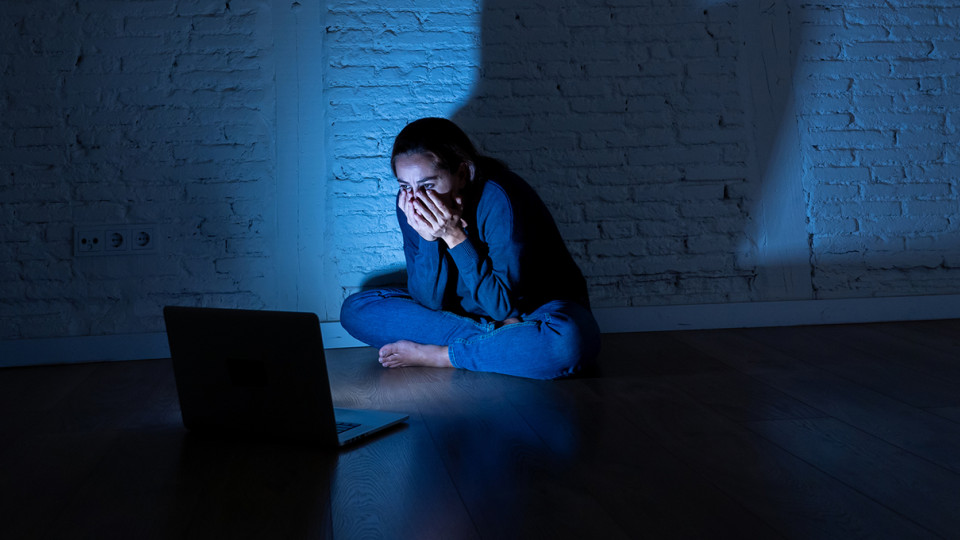
Photo: depositphotos.com Criminals who also involve Ukrainian children in sex business are usually based in other countries or host their Internet resources outside the country. International organizations and Interpol can “get” them and put them on trial or block the content. Oleksiy Sydorenko also confirms that criminals who “work” with children in a particular country are hiding outside the jurisdiction of the country's law enforcement agencies. The statistics of sexual abuse of children on the Internet disrupts adults' perceptions that the problem is somewhere far away or is non-existent. After all, half of the children in Ukraine have not told anyone about what happened to them. At the same time, most of the children surveyed did not receive any warnings or explanations about the threat of sexual violence on the Internet. In 2020, almost one forth of children were involved in at least one situation of sexual abuse or exploitation on the Internet. The information campaign against sexual abuse of children on the Internet, which is being launched in Ukraine today, is meant both for children and adults. Importantly, both non-government organizations and the state have taken up the task of informing children and adults about dangers and ways to counteract them. Therefore, the Cyber Police, the Ministry of Digital Transformation, NGO “Docudays UA,” and NGO “Magnolia” are already working on forming an information field on dangers and their prevention, creating a website for reporting suspicious pages, verifying data, blocking unwanted content, and opening criminal cases. All parties hope that users will not remain indifferent. They have been working on this idea for several years. According to Yaroslava Dyo, “The project was initiated by the Ministry of Digital Transformation. We have been cooperating with European partners for two years. Even before the full-scale invasion, we started consultations with INHOPE, an international network of hotlines for reporting cases of online child sexual abuse, and were looking for a national operator. The development of such hotlines is suggested, in particular, by the Better Internet for Kids+ strategy within the framework of Safe Internet Centers.” The information campaign was preceded by the opening of the Hotline at stopcrime.ua in February. After three months of operation, specialists have already started receiving reports and passing them on to the Cyber Police. A total of 220 reports were recorded in the first month, and 290 more followed in April. The Cyber Police confirmed the facts of the crime in 54 cases in February and 116 in April. “The launch of StopCrime is an important step towards protecting children and creating a safe cyberspace. On this portal, people can report child sexual abuse on the Internet and learn more about online safety. Confirmed information will be immediately forwarded to law enforcement agencies for investigation and exposure of offenders,” says Yuriy Vykhodets, Head of the Cyber Police Department. Often, adults either do not realize that they are witnessing a crime or are afraid to report it. Especially when it comes to “sensitive” adult content: “It may happen that someone has visited a website and found child pornography. What will they do with this link? The person doesn't even know what to do. They might just close the page. Of course, they won't go to the police with this. So we offer an effective tool. Do not pass by, send a message with the copied link. We will take care of the rest, so that the offender is punished and such violence against children does not happen again,” explains Oleksiy Sydorenko. If there is even one percent of suspicion that a child has become a victim of violence or information about them has been published, you should copy the link and send it to the hotline. All project participants emphasize that it is important to record details that we often overlook. Do not just close suspicious sites or messages — instead, contact the hotline. Oleksiy Sydorenko explains, “We received a video from TikTok. It's a 15-second video with a photo collage. The legend looks safe: a person is selling or renting an apartment. There are alternating photos of different places in the apartment. They show the kitchen, the living room, and then the hallway with a naked boy standing there. He accidentally got into the photo. And people sent us this video. They said, ‘Look, is there any danger in this photo?’ It is very important not only to notice it, but also to send it and not be indifferent.” This is exactly how this rule works. In fact, informing about dangers and understanding these dangers is another important component of child protection. We can recall the general uncritical attitude to images of naked babies that adorned apartment walls or were posted online by adults several decades ago. We can also recall the unprotected spaces in schools from a decade ago that were not staffed by security. General understanding of the boundaries of privacy, right to consent and security is still being formed in our society. Therefore, all possible ways to convey information about these aspects are important.
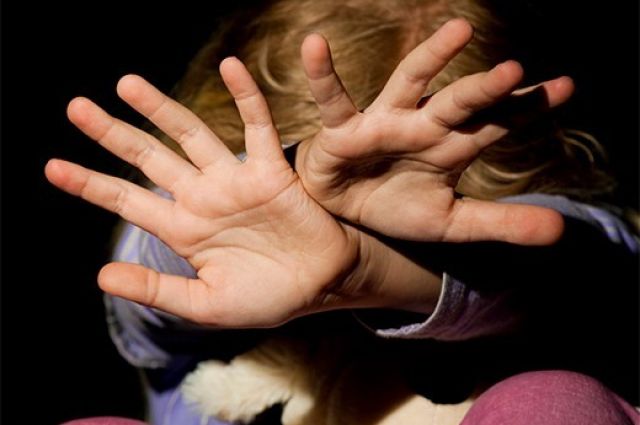
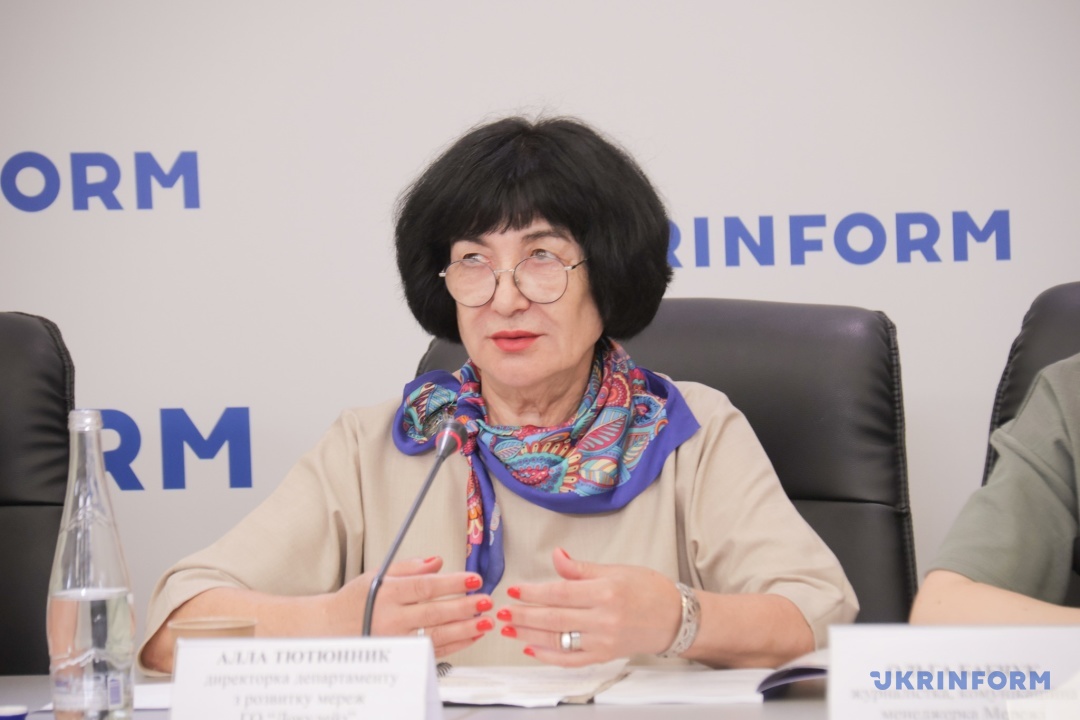
Photo: Alla Tiutiunnyk, Director of the Strategic Development Department, NGO “Docudays” Documentary films will play a special role in the information campaign. The DOCU/CLUB network, which unites human rights media education film clubs of the “Docudays” NGO, will be responsible for educating children and adults about sexual abuse of children on the Internet. “When it comes to children's rights, our motivation and desire to protect children increases tenfold,” says Alla Tiutiunnyk. The network comprises more than 450 film clubs, which attract more than 40 thousand viewers a year. In addition, NGO “Docudays” organizes the annual Traveling Docudays UA Human Rights Documentary Film Festival, which last year alone attracted over 63 thousand viewers. Thus, documentary films make it easier to convey important information to schoolchildren, parents, grandparents, teachers and everyone who cares about the fate of Ukrainian children. Meetings with specialists and experts, organizing film clubs, screening documentaries, discussing ways to solve the problem — everything works. Ultimately, we should continue striving for attention and respect for every person during the war. We can also solve global problems and face the challenges related to protection of our children. WHAT TO DO? If you come across a website, dangerous link, messages, photos of naked children, correspondence, or any information encouraging sexual activity, please visit the site.
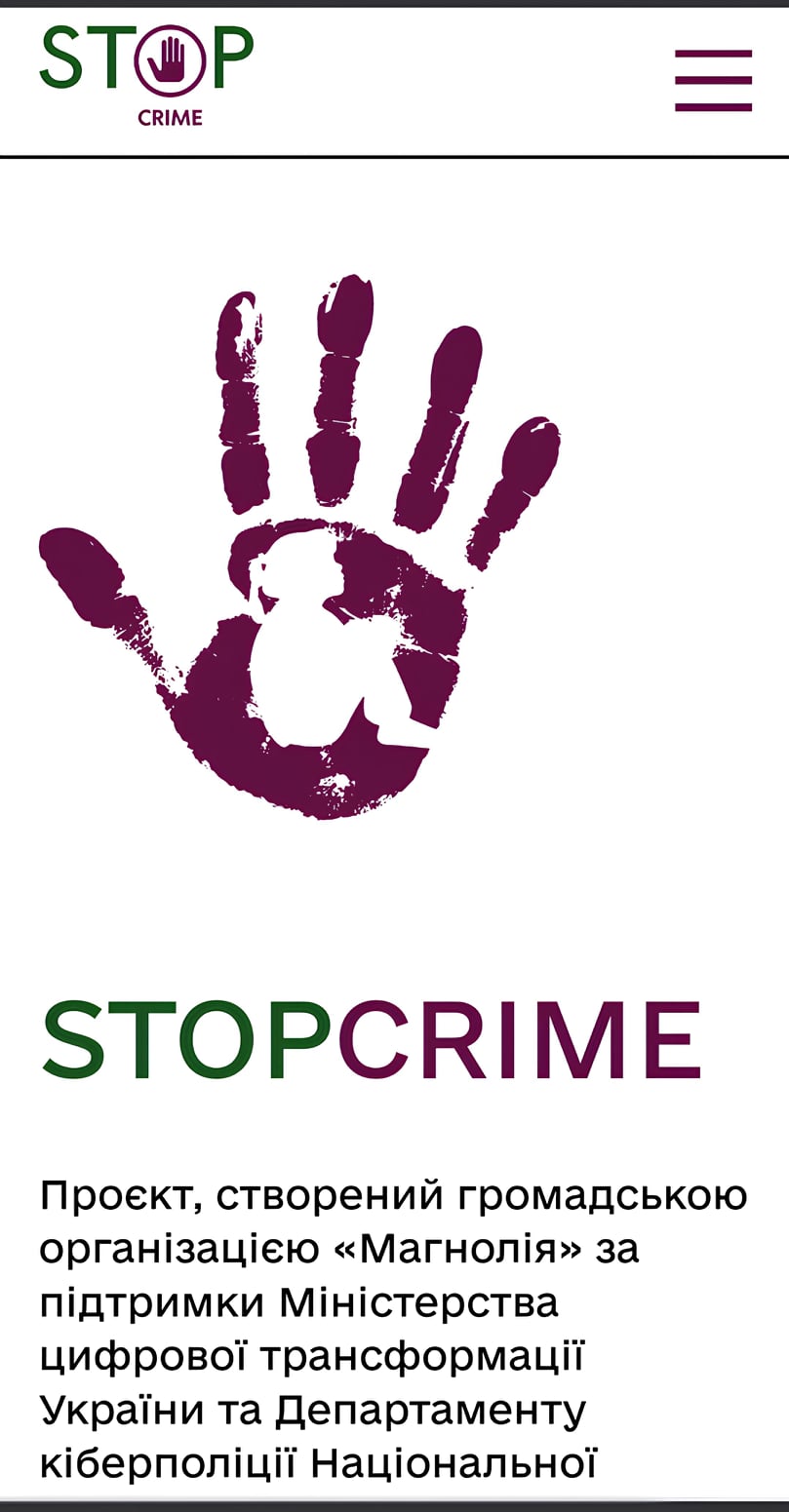
Leave a message in the “report a crime” box — this is the most important thing. The stopcrime.ua portal is a website where you can report any crime against a child. Every citizen of Ukraine can leave an anonymous message about a crime or violence against a child on this website. There are three options for reporting: war crimes, any other crimes against children, and, separately, sexual abuse of children on the Internet and sexual content. The rest will be done by skilled portal analysts. “They check where the content is hosted. If it is hosted in Ukraine, we pass the information to the Cyber Police, who contact the Internet provider and initiate blocking of this dangerous content. If we receive a link to a website from Ukrainian citizens, and our analysts check that it is not hosted in Ukraine, we pass it on to our partners in the INHOPE international organization in the country where it is hosted. In their country, they are doing everything possible to block the content and punish the perpetrators.” The slightest suspicion can save someone's child. More than ever, Ukrainian children are dreaming of a happy and safe childhood. And we can make their dreams come true, at least on the Internet, while their fathers and mothers are fighting for freedom in the real world. Author: Yaryna Skurativska, Kyiv Cover photo: dnmcps.com.ua The development of the DOCU/CLUB Network is funded by the United States Agency for International Development (USAID), the Embassy of Sweden in Ukraine, the National Endowment for Democracy (NED) and Fondation de France. The opinions, conclusions, or recommendations are those of the authors and compilers of this publication and do not necessarily reflect the views of the governments or charitable organizations of these countries. The authors and compilers are solely responsible for the content of this publication.



